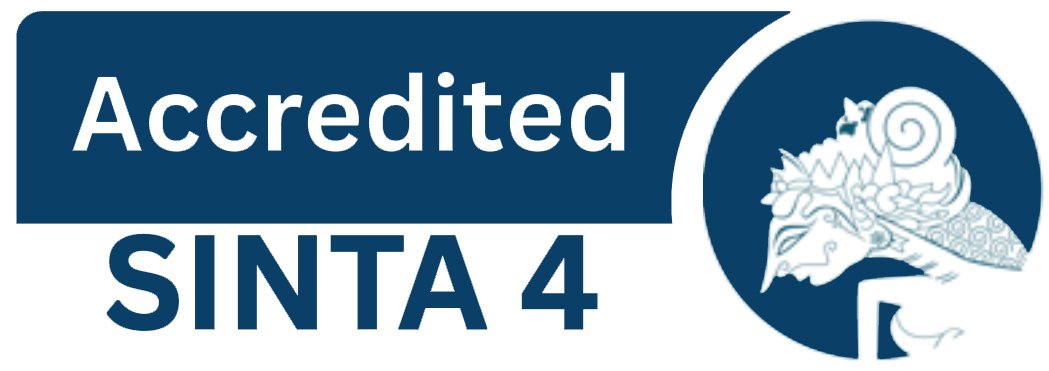IMPROVING PROBLEM SOLVING ABILITY THROUGH THE DISCOVERY LEARNING APPROACH ON STUDY OF SOCIAL SCIENCES
DOI:
https://doi.org/10.22460/collase.v1i6.2296Keywords:
Discovery learning, problem solving ability, social scienceAbstract
The condition of Implementation of teaching and learning at the level of schooling today is still colored by the emphasis on the knowledge aspect and still a little referring to the involvement of students in the learning process itself. In addition, Implementation of teaching and learning social science, conducted by teachers has not been able to foster learning culture among students. The research method used Elliott Model Class Action Research which consists of three cycles and in each cycle there are three actions. Data collection techniques use observation guides, interview guides, field notes, student worksheets, evaluation sheets, photo cameras. The result of the research shows that there is an increase of learning steps by using discovery learning. The statement is based on the result of learning the average value the results of individual tests, the average cycle I of 7.48, cycle II of 7.76 while the third cycle of 7.84.Based on these results, IPS learning using discovery learning approach of student learning activities and student learning outcomes on export and import topics increased after implemented learning using discovery learning approach.
References
Abidin, Y. (2009). Guru dan Pembelajaran Bermutu. Bandung :Rizqi.
AlMuchtar. (2001). Epistimologi Pendidikan Ilmu Pengetahuan Sosial. Bandung: Gelar Pustaka Mandiri.
Banks & Ambrose. (1990). Teaching Strategies for the Social Studies. New York: Longman.
Feisal. (1995). Penelitian Tindakan Kelas. Jakarta: Prenada Media Group.
Gintings, A. (2007). Esensi Praktis Belajar dan Pembelajaran. Bandung: Humaniora.
Hamalik, O. (2003). Pendekatan Baru Strategi Belajar Mengajar Berdasarkan CBSA. Bandung: Sinar Baru Algensindo.
Joyce, B., Well, M., Calhoun, E. (2009). Models of Teaching. Yogyakarta: Pustaka Belajar.
Magono, S. (2009). Metodologi Penelitian Pendidikan. Jakarta: PT Rineka Cipta.
Mutakin, A. (2004). Konsep Dasar Pengorganisasian Pembelajaran IPS di Sekolah Dasar. Bandung: Bina Siswa.
NCCS. (1994). â€Curriculum Standar for Social Studies Expection for Excelenceâ€. Washington: NCCS.
Sadulloh, et al. (2007). Pengembangan Pendidikan Ilmu Pengetahuan Sosial. Bandung: UPI Press.
Sagala, S. (2003). Konsep dan Makna Pembelajaran Untuk Membantu Memecahkan Problematika Belajar dan Mengajar. Bandung: Alfabeta.
Sapriya, dkk. (2007). Konsep Dasar Ilmu Pengetahuan Sosial. Bandung: Laboratorium PKn UPI.
Sapriya, dkk. (2008). Pendidikan Ilmu Pengetahuan Sosial di SD. Bandung: UPI Press.
Suprijono, A. (2009). Cooperative Learning Teori dan Aplikasi Paikem. Surabaya: Pustaka Pelajar.
Susilo, H., Chotimah, H., dan Sari, D. Y. (2008). Penelitian Tindakan Kelas Sebagai Sarana Pengembangan Keprofesionalan Guru dan Calon Guru. Malang: Bayumedia Publishing.
Taniredja, T.H., Pujiati, I., dan Nyata. (2010). Penelitian Tindakan Kelas Untuk Mengembangkan Potensi Guru Praktik, Praktis, dan Mudah. Bandung: Alfabeta.
Wahab, A. H. (2007). Metode dan Model-model Mengajar Ilmu Pengetahuan Sosial (IPS). Bandung: Alfabeta.
Wena, M. (2008). Strategi Pembelajaran Inovatif Kontemporer Suatu Tinjauan Konseptual Operasional. Malang: PT BumiAksara.



